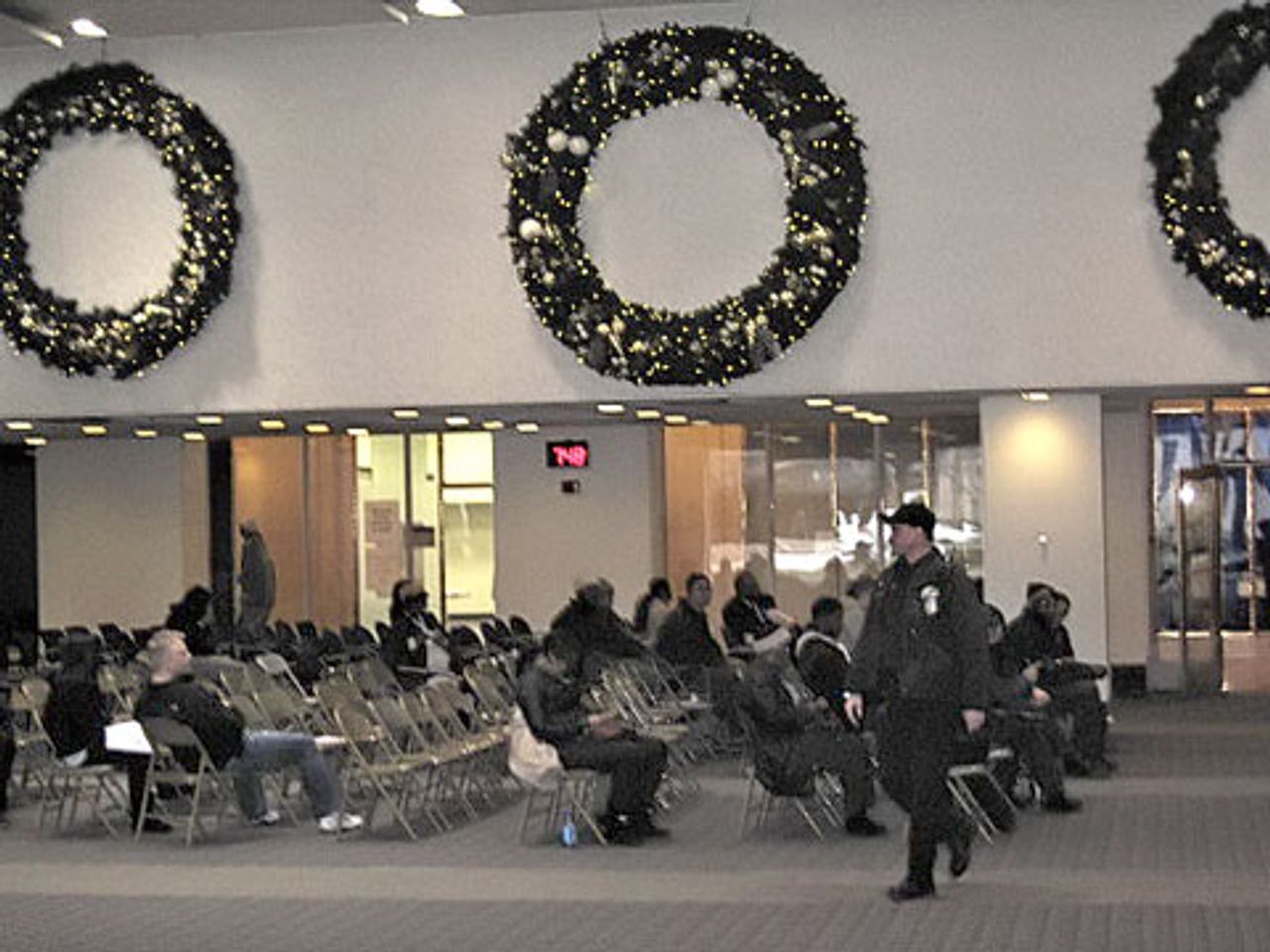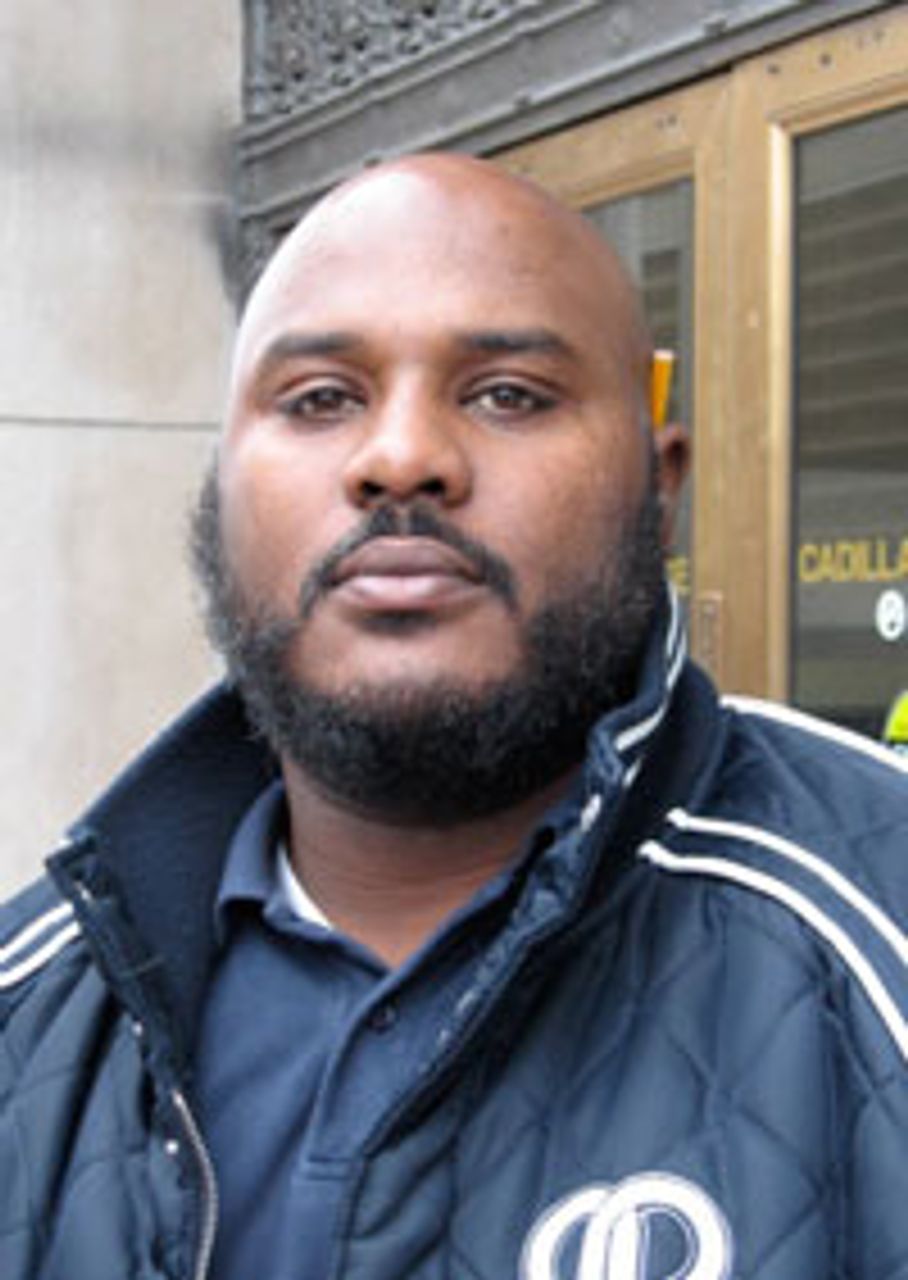Nowhere in the US is the unemployment crisis more severe than in Detroit and its metropolitan area in Southeast Michigan. Once the hub of the US auto industry and home to some of the best working class jobs, Detroit is now the poorest big city in America.
As the winter months approach, Detroit residents face a desperate situation—continued mass unemployment, the cutoff of extended federal benefits, the ever-present danger of having their utilities shut off or their homes seized. Whatever jobs are available pay poverty-level wages, hardly adequate to keep food on the table.
The unemployment rate in the metropolitan area is 13.4 percent, down two percentage points in one year. However, this decline is largely attributable to the long-term unemployed falling out of the workforce. The real unemployment rate may be 20 percent or higher. In Detroit proper, real unemployment—including those involuntarily working part time and those who have given up all hope of finding work—is estimated at 50 percent.
By refusing to extend unemployment benefits, Congress and the Obama administration are condemning the population of cities like Detroit to mass impoverishment.
Reporters from the World Socialist Web Site recently went to an office of the Michigan Bureau of Workers’ and Unemployment Compensation to speak to workers about the consequences for themselves and their families.
 The unemployment center
The unemployment centerThe office is located, with historical irony, in the old headquarters of General Motors, once the biggest private employer in the world. The expansive size of the building, Cadillac Plaza—once the largest single-occupant office building in the world—and its vaulted ceilings and marble, granite, and limestone construction, stand in sharp contrast to its present purpose. In addition to the office for unemployment, the building holds a state lottery claims center and other state offices.
The benefits office was busy; there were perhaps 150 workers waiting in line for assistance. However, this is still a small fraction of the unemployed in Detroit. Most claims and filings now happen on-line or by telephone.
All sorts of obstacles are set up to keep workers from accessing unemployment benefits. There are strict requirements related to the length of steady employment prior to being unemployed. Workers are also required to prove they are actively seeking employment. If benefits can be secured, they are kept low as a punitive means of “encouraging” the unemployed to seek work. In Michigan, weekly benefits are low even relative to the rest of the country and are generally equivalent to the levels prevailing in the Deep South.
 Nikita Johnson and husband Sylvester Strickland
Nikita Johnson and husband Sylvester StricklandThe WSWS spoke to Nikita Johnson and her husband Sylvester Strikland. Nikita lost her job in October 2010 following an injury. She worked as a medical technician in an apartment complex for senior citizens. Despite her recovery, the company refused to hire her back.
Nikita said she understood what the long-term unemployed were going through. “I feel that it is wrong to cut off the extension,” stated Nikita. “Even though they were given extensions, they still need the income. What is going to happen if they are cut off? Many of those people will lose their homes and become homeless. A lot of people will lose their families. They don’t understand that people wouldn’t be asking for it if they didn’t need it. It’s like they don’t care.”
Nikita said that a lot of the jobs these days are paying $7, $8 maybe $10 an hour without benefits, and people just can’t live on it.
Sylvester, self-employed as a mechanic, said working people face a terrible jobs situation. “This government should be ashamed,” stated Sylvester. “If they cut off people, and we are talking about 2 million people, what are they going to do for money? It’s going to be a bad situation for everybody.”
“A lot of people are doing whatever they can to get by,” Sylvester continued. “Some people are becoming self-employed like what I am doing. You just can’t find a job.”
Looking at his wife and child with him at the center, Sylvester said, “I know a lot of people are moving in with their families. It is not unusual now to have three families living in the same house hoping that someone is going to get a job.”
Sylvester said he is convinced that the census count in Detroit is skewed because of the number of people living together.
“A lot of people are living with illegal utility hookups, and with ten or more people in a house. It’s tough, but what are people supposed to do?”
Eric Quick is unemployed with children. He is not eligible for benefits because he has been out of work for too long. The decision to allow unemployment benefits to expire is “just going to run the crime rate up,” Quick said. “People are going to steal, rob, and kill to try feed themselves and their families.”
“Not too much has changed with Obama,” Quick said. “Nothing has changed for the poor. Maybe things are better for the rich.”
 Levon
LevonLevon has been out of work for a year since being laid off from the Thompson Group, a Detroit-area manufacturer. He now gets $300 every two weeks in benefits, with two kids to support.
“There are no jobs. When I put in applications, they say I’m either not qualified or over-qualified,” Levon said. “You have to work to live, and then they want to deprive you of your work.”
“You get into the situation that you can’t afford your heat and gas, you’re not sleeping at night because of the cold, and you’re not eating square meals.”
Levon asked the WSWS about the Wall Street bailout. “What’s going on with all the money the banks have been issued?” he asked. “Why aren’t they issuing that money to people?”
 Jose
JoseJose is an out-of-work construction worker, born in Mexico. “There are no jobs. I did asphalt construction, but it’s over,” he said. “I’m hoping that in the spring jobs will come back. Somebody’s got to pay the bills”
Francisco, 31, has been laid off from a landscaping job for seven months. He gets checks every other week for $400. He must support three kids on that income, plus the money his girlfriend earns as a nurse. Francisco hopes to get a job with a friend clearing snow for the winter. He is also considering moving out of Detroit to the suburb of Southfield because he believes insurance will be cheaper.
Francisco is angry that funding for the jobless benefit extension was ended, even as Congress works on extending tax cuts for rich. “That’s what I hate,” he said. “They always look out for the rich people.”
“Obama hasn’t done anything,” he continued. “The only thing he’s done is take us to war. He’s no different than any other president we’ve had.”
 Francisco
Francisco“I got arrested and put in prison when I was 18. I was young and dumb. That was 12 years ago, and I can’t get a job because I was a convict. But I was only 18. I’ve tried everything. Nobody’s hiring.”
Francisco says he knows many households that live without utilities. Some of them make “little bonfires” inside their houses to keep warm on cold days, he says. “One of my girlfriend’s friends just got her gas cut off for being $2 short on a bill. She owed $117 and she accidentally sent in $115, so they cut the gas and lights.” He worries about “innocent little kids dying in house fires because they’re in homes without heat or lights.”
